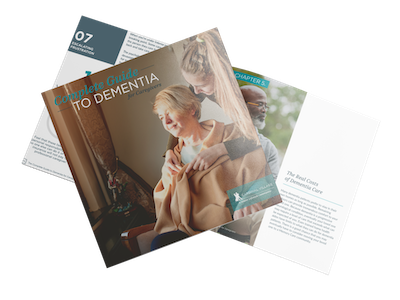How To Encourage Individuals With Dementia To Stay Nourished

Ensuring that an individual with dementia receives adequate nutrition is a critical aspect of their overall care and well-being. As dementia progresses, seniors often face numerous challenges that can impact their eating habits, including decreased appetite, difficulty swallowing, and confusion during meals. These challenges can lead to malnutrition and a decline in their health.
Caregivers play a pivotal role in addressing these issues by employing strategies that make eating more accessible and enjoyable. By understanding the unique needs of those with dementia and implementing thoughtful approaches, caregivers can significantly enhance their loved ones’ nutritional intake and quality of life.
9 Ways to Encourage Seniors with Dementia To Stay Nourished
It can be a struggle to get an individual with dementia to eat, and it’s especially trying if that person is a loved one. Here are a few strategies to get someone with dementia to eat well and consistently:
1. Create a Comfortable Eating Environment
Eating in a quiet, calm setting can help those with dementia focus on their meal. Turn off televisions, reduce background noise, and avoid any other distractions that might make it difficult for the senior to concentrate on eating.
Ensure the dining area is well-lit so that they can clearly see their food. Good lighting can make the food look more appealing and help seniors better recognize what they are eating.
Download The Complete Guide to Dementia for Caregivers
The uncertainty of memory issues can be a source of stress for people living with memory problems and those who care for them. Caregivers may experience sleepless nights, loss of interest in hobbies and socializing, or adverse effects on your health. People with Alzheimer’s, dementia, and other memory issues benefit from informed caregivers.
Download our free guide for everything a caregiver needs to know about dementia.
Download the GuideMake sure that chairs are comfortable and the dining table is at the right height. Seniors should be able to sit comfortably without straining, which encourages longer meal times.
Use familiar table settings, including dishes, utensils, and placemats. Familiarity can reduce confusion and make mealtime more pleasant. Using contrasting colors for plates and tablecloths can also help the senior see their food more clearly.
2. Establish a Routine
For individuals with dementia, routine provides a sense of security and predictability. Establishing regular meal times can help them anticipate when it’s time to eat, reducing anxiety and confusion.
Eating meals at the same times each day helps reinforce the habit of eating and can stimulate appetite. Consistency can also help regulate their body’s internal clock, making them more aware of when they are hungry.
3. Make Meals Appetizing
The visual appeal of food can stimulate appetite. Serve meals that are colorful and arranged attractively on the plate. Using a variety of textures and colors can make the meal more appealing.
Strong flavors and pleasant aromas can enhance the appeal of food. Cooking with herbs and spices (as tolerated) can make meals more flavorful. Avoiding overly bland foods can help maintain interest in eating.
Incorporate the senior’s favorite foods and flavors into meals. Familiar and preferred foods are more likely to be accepted and enjoyed.
4. Offer Small, Frequent Meals
Individuals with dementia may have smaller appetites or may not be able to eat large meals. Offering smaller, more frequent meals throughout the day can help them get the necessary nutrients without feeling overwhelmed.
Eating smaller meals more frequently also ensures that the patient is receiving a steady supply of nutrients and energy throughout the day. This can help prevent dips in energy and maintain stable blood sugar levels.
5. Adapt Meals to Needs
As dementia progresses, seniors may experience difficulties with chewing and swallowing (dysphagia). Adapting food consistency to their abilities can help prevent choking and aspiration. This might include soft foods, purees, or finely chopped foods.
Some seniors might do well with mashed or minced foods. Soft foods like mashed potatoes, scrambled eggs, and yogurt can be easier to eat. For those who can handle it, finely chopped or ground meats and vegetables might be appropriate.
It may be necessary to experiment with different consistencies to find what works best for the senior. Caregivers should monitor their response and adjust accordingly.
6. Supply Nutrient-Dense Foods
Individuals with dementia may eat less due to decreased appetite, difficulty swallowing, or forgetting to eat. Offering foods that are high in essential nutrients can help ensure they get the vitamins and minerals they need in smaller portions. This includes foods rich in proteins, healthy fats, vitamins, and minerals.
Finger foods and foods that are easy to chew and swallow can be particularly helpful. For example, pieces of fruit, cheese, yogurt, smoothies, and nutrient-dense snacks like nuts (if they can safely chew and swallow them) or nut butters.
Sometimes, adding extra ingredients to meals can boost their nutritional value. For instance, adding protein powder to smoothies or soups, or using fortified cereals and milk.
7. Encourage Hydration
Those with dementia may forget to drink water or may not recognize the sensation of thirst. Regularly reminding and encouraging them to drink fluids is crucial. Setting alarms or using apps that remind both the caregiver and the senior can be helpful.
Including foods with high water content, such as fruits (like watermelon, oranges, and strawberries) and vegetables (like cucumbers and tomatoes), can contribute to their overall fluid intake.
Offering a variety of beverages like water, herbal teas, milk, and natural fruit juices can make drinking more appealing. Some seniors might prefer flavored water or water with a slice of lemon or lime to plain water. Avoid too much caffeine, which can be dehydrating.
8. Make Eating a Social Activity
Eating with others can make meals more enjoyable and encourage better eating habits. The presence of family, friends, or other residents (in a care facility) can provide social stimulation and make meals feel like a shared, pleasant activity.
Engaging them in conversation during meals can help distract from any anxieties about eating and encourage a positive association with mealtime. Caregivers should be mindful to keep conversations pleasant and avoid topics that might cause distress.
9. Be Patient and Positive
Eating can be a challenging task for those with dementia, and they may require extra time and support. Approaching mealtimes with patience is essential. Avoid rushing them, as this can cause anxiety and frustration, which might lead to a refusal to eat.
Use encouraging words and gestures to create a positive dining experience. Praise small successes, such as finishing a portion of food or trying a new dish. Positive reinforcement can boost the senior’s confidence and willingness to eat.
Create a non-judgmental atmosphere where the senior feels safe and comfortable. If they make a mess or struggle with eating, avoid expressing frustration or impatience. Instead, offer gentle assistance and reassurance.
By implementing these strategies, caregivers can help ensure that individuals with dementia receive the nutrition they need in a supportive and compassionate manner.
What Caregivers Also Need to Know
Here are additional considerations for caretakers and family members of those with dementia to ensure their well-being:
- Address underlying medical issues: Ensure they have regular medical check-ups to address any underlying issues that might affect appetite, such as dental problems or medication side effects.
- Understand appetite changes: Some medications can affect appetite or cause nausea. Monitor and discuss these with a healthcare provider. As dementia progresses, changes in appetite and eating habits are common. Adapt strategies accordingly.
- Monitor nutritional intake: Keep a food diary to track what and how much they eat to ensure they are getting adequate nutrition.
- Handle behavioral issues: If the senior tends to wander, ensure they are guided back to the dining area. Understand that refusal to eat may be due to confusion or frustration. Approach meals with patience and calmness.
- Manage special dietary needs: If the senior has specific dietary needs, work with a dietitian to plan appropriate meals. Be vigilant about any food allergies or intolerances.
- Encourage independence: Encourage seniors to feed themselves as much as possible to maintain independence and motor skills.
- Assist when necessary: Offer assistance when needed, but do not rush. Allow them to eat at their own pace.
- Deal with sensory changes: Dementia can alter taste and smell. Enhance flavors with herbs and spices rather than salt. Use contrasting colors for food and plates to make meals more visually appealing and easier to identify.
- Watch for difficulties: Be aware of signs of malnutrition, such as weight loss, fatigue, and decreased muscle mass. If there are significant concerns about nutrition or health, seek prompt medical advice.
Find Healthy, Happy Meals at a Senior Lifestyle Community
By staying aware of these additional factors and being proactive in addressing them, caregivers and family members can better support the nutritional and overall well-being of those with dementia and Alzheimer’s.
Senior Lifestyle communities can help seniors, and their family members, live a worry-free life while we take care of the everyday needs of living, such as cleaning and meal preparation.
Find out more about Senior Lifestyle or schedule a visit today.
The post How to Encourage Individuals with Dementia to Stay Nourished appeared first on Senior Lifestyle.


